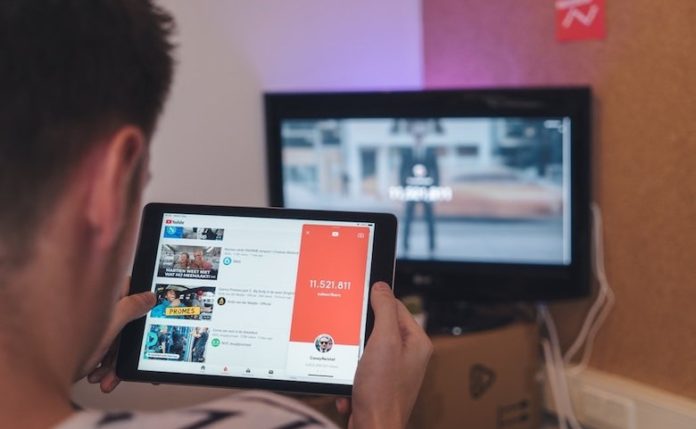Finland is the first country to classify social media influencers as essential workers during a crisis, along with doctors, bus drivers and grocery store workers.
The decision was made two years ago when the Finnish Government, the national emergency supply agency’s media department Mediapooli and social media influencer consultancy PING Helsinki joined forces. However, no one thought that the need to put the partnership into practice would come so quickly.

The World Health Organization (WHO) has increasingly relied in its messaging on non-traditional media from Facebook to WhatsApp to keep people safe from coronavirus and health authorities in Finland have followed suit.
“Traditional media does not reach everyone. Some might even trust influencers more than traditional media,” explains Lahti.
The main role of influencers during the COVID-19-pandemic is to share reliable information on social media. They participate voluntarily and do not get paid. Anyone who feels they are an influencer is welcome to help.
“Many influencers think that their influence covers only the topics they normally talk about but in reality, they can have a major impact on their follower’s societal opinions and decisions”, Lahti says.
PING Helsinki only spreads information that is from the Finnish Government. Influencers can for example order #faktaakoronasta (facts about COVID-19) a newsletter in which they receive all the material in social media-friendly format.
“It’s difficult when there is information coming from every direction. That is why we always tell our influencers precisely and briefly the three or four most important facts right now.”, Lahti says. Around 1800 influencers are getting the newsletter.
In addition to PING Helsinki, other social media agencies have also realized the importance of influencers. “Social media influencers have an extremely important role during a pandemic since traditional media does not reach everyone. It is important especially for younger people to find the information from relevant channels for them and in the right format”, says Splay One’s Country Manager Minna Pajunen in her interview with UNRIC. Splay One is a Nordic power house for branded entertainment and represents over 500 Nordic influencers.
Greater power brings greater responsibility
Roni Back, one of the most popular YouTubers in Finland with over 500 000 followers, wants to inform, but also entertain, his followers. In an interview with UNRIC, he says that he feels great joy when he can create meaningful content about important topics that has a positive impact on his followers’ lives. He is not part of PING Helsinki’s project.
Roni Back made a video where he interviewed minister of Education Li Andersson and a doctor about COVID-19. The video covered the importance of physical distancing and even had a tutorial about how to wash hands correctly. “I made the video because younger people don’t necessarily read news and thus are unaware of the seriousness of the situation”, he says.
Back is accustomed to making videos about societal topics. He has made videos about bullying, racism and climate change. “Information overload is so massive that it is hard to know what is real and what is not. That is why it might help to have a familiar face to tell you how it really is.”
Both for Splay One and PING Helsinki it is important that influencers share only fact-based information. “We constantly check that our influencers’ content is correct and fact-based”, Pajunen says. PING Helsinki also hopes that influencers would be able to stop mis- and disinformation from spreading. They have previously even created an Influencer’s Handbook https://influencerhandbook.fi/ which gives guidance to influencers on how to avoid spreading misinformation.
Joy, hope and positivity during a crisis
It is important that influencers not only share truthful information but also entertain their followers during a crisis. “Many younger people aren’t going to school or seeing their friends which can create loneliness and anxiety. It might help to follow a relatable influencer and through that they get peer support. Younger people might feel that influencers are almost like their friends”, Minna Pajunen says.
PING Helsinki also sees the importance of positive content. They have for example organized inspiring webinars and now they are planning a way for Finns to celebrate their favourite holiday, May Day, remotely.
“It is important that we offer something concrete and positive as a counterweight for all the restrictions”, Lahti says. PING Helsinki launces on Friday (24.5.) at virtuaalivappu.fi where everyone can celebrate May Day. They also hope that influencers organize Instagram livestreams so that everyone can celebrate together.

The World Health Organization has emphasized the importance of preserving mental health during the COVID-19 crisis. Dr. Hans Kluge, the WHO Regional Director in Europe, told a briefing on Mental Health and COVID-19 that in addition to doing breathing and muscle relaxing exercises, and acknowledging and discussing upsetting thoughts his recommendation was simply: “Try to stay positive.”
Finland has had roughly 4,000 COVID-19 cases in total. While 149 have died in the pandemic, the death-rate is one of the lowest in Europe or only 27 per million compared to 192 in neighbouring Sweden and 464 in Spain, the worst hit country in Europe and the world. The same applies to the total number of cases of infections, 745 per million compared with 1,585 in Sweden and 4,475 in Spain as of 22 April 2020.
Additional links:



